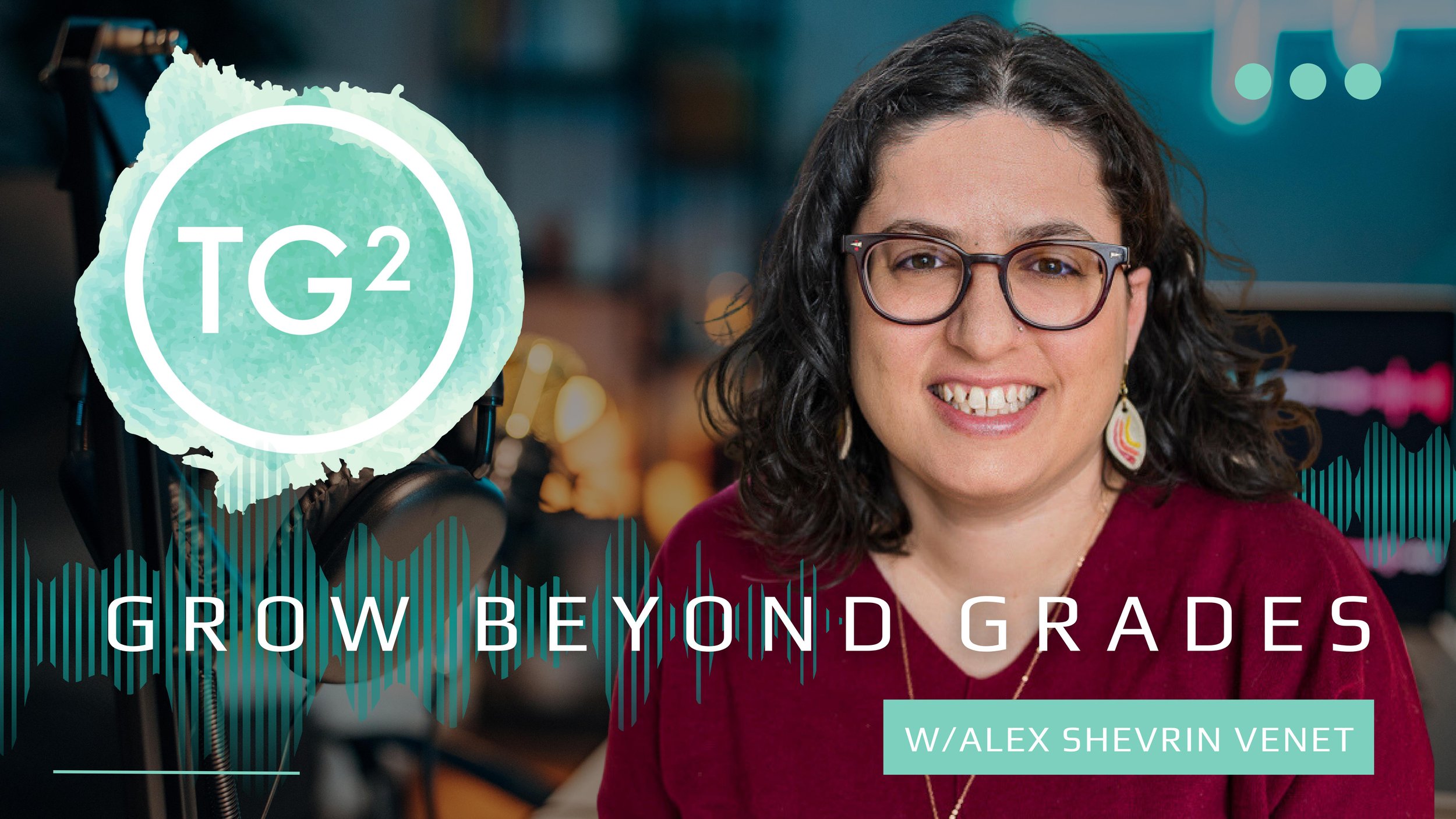Does Going Gradeless Work?
For Rhonda Higgins, going gradeless has been a journey. From learning about the impact of a zero on a 100-point scale to implementing student-led grading conferences, Rhonda now shares with others how they can reclaim their time by giving students more accountability of their learning. “Teachers should not own 100% of the assessment process,” she writes. “By grading less, students share in the responsibility.”
The Mastery Transcript w/Mike Flanagan
Lisa Wennerth interviews Mike Flanagan, CEO of the Mastery Transcript Consortium (MTC), a growing group of high schools creating a digital high school transcript that opens up opportunity for each and every student—from all backgrounds, locations, and types of schools—to have their unique strengths, abilities, interests, and histories fostered, understood, and celebrated.
Using a Graphic Syllabus (And Why I Think It Works)
For Middlebury College professor, Greg Pask, a graphic syllabus is a chance to establish the tone he wants for a course. Instead of treating the syllabus as a list of rules, penalties, and a code of conduct, the graphic syllabus communicates a “welcome to learning” invitation. And although a graphic syllabus and ungrading are not corequisites, the “ welcoming vibe of the graphic syllabi pairs well with my gradeless approach.”
Equity-Centered Trauma-Informed Education w/Alex Shevrin Venet
Lisa Wennerth interviews Alex Shevrin Venet, author Equity-Centered Trauma-Informed Education. Venet explains how schools can become more truly trauma-informed when they center equity and employ “proactive priorities” in planning and decision making. A long time ungrader, Alex examines how the same principles can be used to make ungrading more inclusive and equitable.
Communication: The Key to Success
Regardless of whether we care about grades, they are still an obstacle we must address. Going gradeless requires that teachers be especially proactive and open in their communication. In addition to adopting instruction and assessment practices that are accessible and equitable, it is equally important we convey these approaches so they are easily understood by all interested parties.
We Need to Talk About Standards-based Grading
While standards-based grading purports to put the focus squarely on learning, practitioners have noted how this is not always the reality. Arthur Chiaravalli points out the ways that SBG “has at times become a stumbling block, frustrating attempts to foster cooperation, accommodate complexity, and respond to the urgent issues of our day.”
A Love Letter to My 40-Page Transcript
As a graduate of the famously grade-free Evergreen State College in Olympia, Washington, Nate Bowling received narrative evaluations rather than grades. “My transcript,” Nate writes, “shows who I was as a student far better than any series of letter grades or GPA could dream of.”
Telling the Whole Story w/Nate Bowling
Nate Bowling teaches Social Studies at a US Embassy School in Abu Dhabi in the United Arab Emirates. He is a past Washington State Teacher of the Year and National Teacher of the Year Finalist. He and his wife blog about living and teaching overseas at BowlingsAbroad.com and he is the host of the Nerd Farmer Podcast.
The Long Unwinding Road
Grading systems are remarkably resistant to rethinking given the vast infrastructure built up around our commonly-accepted approaches to grading. Barry Fishman recounts some of his encounters with both the institutional infrastructure, explaining how systemic inertia makes it difficult to give up the current system.
Toward Assessment Utopias w/Juuso Nieminen
Lisa Wennerth interviews Juuso Nieminen, whose research focuses on the student perspective in assessment, and particularly how assessment shapes students’ identities in higher education and beyond. By entering into assessment partnerships with students, can teachers disrupt the usual power relations of grading and foster student empowerment?
Empowering Students through Project Day
Carla Meyrink, co-founder and secondary director at The Community for Learning, explains how a biweekly Project Day has revolutionized her school by providing students with the freedom to explore and create, free from the pressure of grades. It has lowered stress levels, encouraged creativity, and provided opportunities for cross-curricular learning.
Taking Grades Off the Table w/Vanessa Ellis
Vanessa is an 8th-grade social studies teacher at Veterans Memorial Middle School in Columbus, Georgia. In 2017, Vanessa was named a Georgia Economics Teacher of the Year. This year, she officially joined our team here at TG2 and is currently one of ten finalists for Georgia Teacher of the Year. She resides in Midland, Georgia, with her husband and three children.












